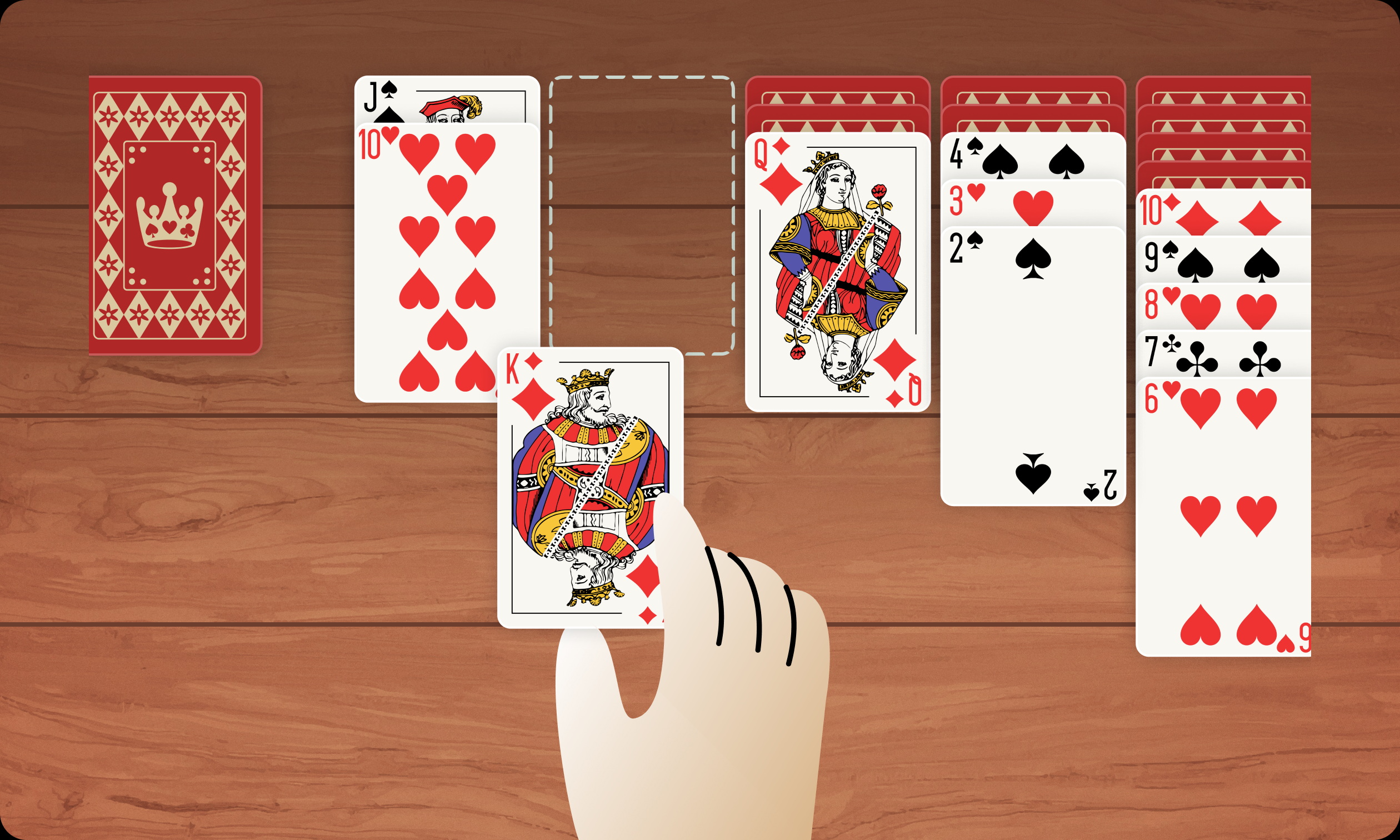The Psychology of Solitaire: Why We Play
What Is The Psychological Appeal Of Solitaire

Have you ever wondered why our brains gravitate towards activities like Solitaire – games which, on the surface, really have no immediate benefit? I often do. It’s really interesting how I’ve found myself sitting for sometimes an hour on end, shuffling cards around as I try to beat my own records. Considering that more than 41% of all card games played are Solitaire, it should come as no surprise that people spend plenty of time on this card game.
It actually took me one of those hour-long sessions to come to this question. Once I sat back after finally finishing a game of Klondike in record time, I got to wondering: how do I find this seemingly mundane activity so engaging? Of course, I couldn’t let that question simmer in my mind unanswered, so I started snooping around. And, to my surprise, I discovered that there’s a deep-rooted psychological basis around why we play Solitaire.
The Timeless Appeal of Solitaire
For context, I first looked at how long Solitaire stuck around to give me an idea of whether my obsession was a little fluke or not. As it turns out, Solitaire has been a part of people’s lives for the better portion of the past three centuries. From a mode of fortune-telling to a gamified pastime, it’s held a prominent place in history for quite a long time.
Even today, advances in technology have led to Solitaire being accessible to millions of people worldwide, so we have a much bigger sample size of why and how Solitaire is played across the world.
The Many Reasons Why We Play Solitaire
Today, the reasons why we play Solitaire are quite widespread, but I’ve discovered that the underlying psychological reason why we play is focused on cognitively challenging ourselves and watching ourselves improve over time. However, it’s important to dissect individual reasons into their proper categories. So, here, we’ll focus on the most prominent reason why we play.
Emotional Well-being and Solitaire
One of the more subtle yet prominent reasons why we play Solitaire is the feeling of emotional well-being it brings about. Do you remember that feeling of accomplishment and well-being you felt when you first completed a game of Solitaire? That’s the feeling I’m referring to.
You see, these moderately challenging games like Klondike and FreeCell can bring about a feeling of achievement when you manage to beat your goals or tasks. Apparently, this feeling is also accompanied by a meditative effect, which can soothe you and dampen the effect of other stressors in your life.
Solitaire's Social Aspect
If you’ve played Solitaire socially, you’ll also relate to the feeling of finding companionship and like-minded people through the game. Solitaire isn’t that mentally challenging of a game if you don’t make it to be. Yup, you can play it casually over a conversation with your friends, as well.
When you play Solitaire with your friends, you build relationships through a simple activity, and the simple idea of connecting and socializing while playing a game with someone you’re close to is enough of a reason to play this timeless card game.
Challenging Yourself Through Solitaire

As I glossed over previously, Solitaire can give us a challenge that makes us strive to push the limits. You may have found that things that are too challenging often make you run away from them, and tasks that are far too simple just aren’t stimulating enough. There are only a fraction of things that induce the perfect amount of challenge, or eustress, that make us want to put in the optimal effort.
With Solitaire, due to its many variants, we can find the game that offers the perfect challenge and slowly climb its ranks.
Accessibility and Inclusivity of Solitaire
Finally, the last aspect of why we play Solitaire is simply its widespread accessibility. I remember how the digital revolution brought Solitaire to every household computer. Since there weren’t many activities you could do back then, Solitaire was probably the most entertaining app on the device.
Slowly, as our technology has advanced, Solitaire has only become more and more accessible and inclusive. With creative new variants and digital versions offering tonnes of additional features, there’s something for everyone now.
Final Thoughts – Summing Up Why We Play
- Reason for Playing Solitaire
- Details
- Emotional Well-being
-
- Sense of accomplishment and well-being.
- Meditative effect reduces stress.
- Social Aspect
-
- Facilitates companionship and connection
- Suitable for casual play and socializing.
- Challenge and Self-Improvement
-
- Offers a balanced level of challenge (eustress).
- Encourages skill improvement in different game variants.
- Accessibility and Inclusivity
-
- Increased availability through digital revolution.
- Evolved to include various creative and inclusive digital versions.
The table above accurately encapsulates the major reason we play Solitaire. Which ones do you relate to the most? I’ve always felt that Solitaire has helped me connect to a lot more like-minded individuals, and it’s certainly helped me foster relationships with people who’ve helped me improve my game as well.
While there are many more reasons we play Solitaire, the ones you’ll find here sum it all up quite nicely. At the end of the day, we all still have our own reasons for playing the game. Considering there are so many advantages we can reap, why stop now?